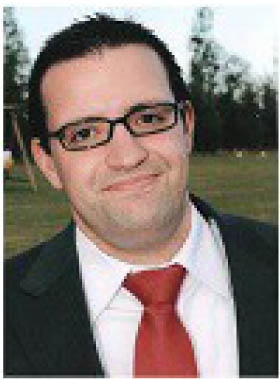 One of the most profound changes to the Basic Health Law in Portugal took place in 2002, with the introduction of Law No. 27/2002, of 8 November. In particular, this Law comes for the first time to allow the hospitals of the National Health Service (SNS) to be administered based on the principles of business management, in order to promote the satisfaction of users' needs..
One of the most profound changes to the Basic Health Law in Portugal took place in 2002, with the introduction of Law No. 27/2002, of 8 November. In particular, this Law comes for the first time to allow the hospitals of the National Health Service (SNS) to be administered based on the principles of business management, in order to promote the satisfaction of users' needs..
There are currently 33 company hospitals to operate on national soil, with the Algarve region having two units of this nature until June 2013.
Larger and more differentiated, the Hospital de Faro (HF) has the mission of "characterizing itself as a central reference hospital in the NHS and in the region", assuming the “ensures the health safety of all who live in or visit the Algarve region and its area of influence".
Unfortunately, the realization of this noble mission is difficult, particularly given the economic and financial situation of the Hospital. In particular, the 2012 report and accounts reveal that HF is technically bankrupt (total endowment of -36 million euros), has a serious economic imbalance (EBITDA of around -2 million euros and net income of around -5.5 million euros). -5 million euros) and faces a serious treasury problem (general liquidity does not exceed 300%, immediate liquidity is nil and the average payment period exceeds XNUMX days).
Still, the economic performance of HF even improved year-on-year.
Accounting considerations aside (see the document on the certification of accounts for this purpose), in 2012 there was a reduction in EBITDA of around 84% compared to the figure calculated in 2011, largely due to considerable savings in the Cost of Consumables (9 million euros), Supplies and External Services (3.6 million euros) and Basic Remuneration of Personnel (2.2 million euros).
Is it then possible to infer that we are moving towards sustainability with regard to the Algarve public hospital sector?
Unfortunately not. In fact, chapter 5 of the report and accounts shows that there was a considerable reduction in HF production in 2012.
In particular, the number of surgeries (scheduled, urgent or additional) decreased by 12.67% compared to 2011, which is equivalent to a loss of 1,062 interventions. The outpatient clinic activity also suffered a significant drop in year-on-year terms, with losses of 35.71% in the surgical area, 10.71% in the number of consultations and 11.51% in the number of first consultations.
There were 22,663 fewer outpatient consultations (or 10.91% of the total in 2011), with the day hospital having reduced its activity by 4,819 sessions (ie, it lost 20.49% of its activity year-on-year).
Finally, there was a drop of 18,747 emergency calls compared to 2011, which is equivalent to a reduction of 12.49% in this important area of activity of the HF.
These numbers reflect a harsh reality and lead to a worrying conclusion: the improvement in the HF's economic performance in 2012 was at the expense of a significant reduction in the public offer of hospital healthcare in the Algarve.
In June 2013 the Centro Hospitalar do Algarve, EPE was created through the merger of HF with the Centro Hospitalar do Barlavento Algarvio. It is too early to realize the impact of this operation on the region's capacity to produce quality health care goods at a socially affordable cost.
As an economist, taxpayer and resident in the Algarve, I hope that this new unit will effectively be managed based on the principles of business management, as only then will it be possible to finally fulfill the goal of promoting the satisfaction of users' needs, a fundamental predicate of Law no. º 27/2002 of 8 November.
Author Luis Coelho
Effective Member of the Order of Economists
Member of the Installation Committee of the Algarve Delegation of the Economists Association
Assistant Professor of Finance at the Faculty of Economics, University of Algarve
Note: Article published under the protocol between the Sul Informação and the Algarve Delegation of the Order of Economists


















Comments